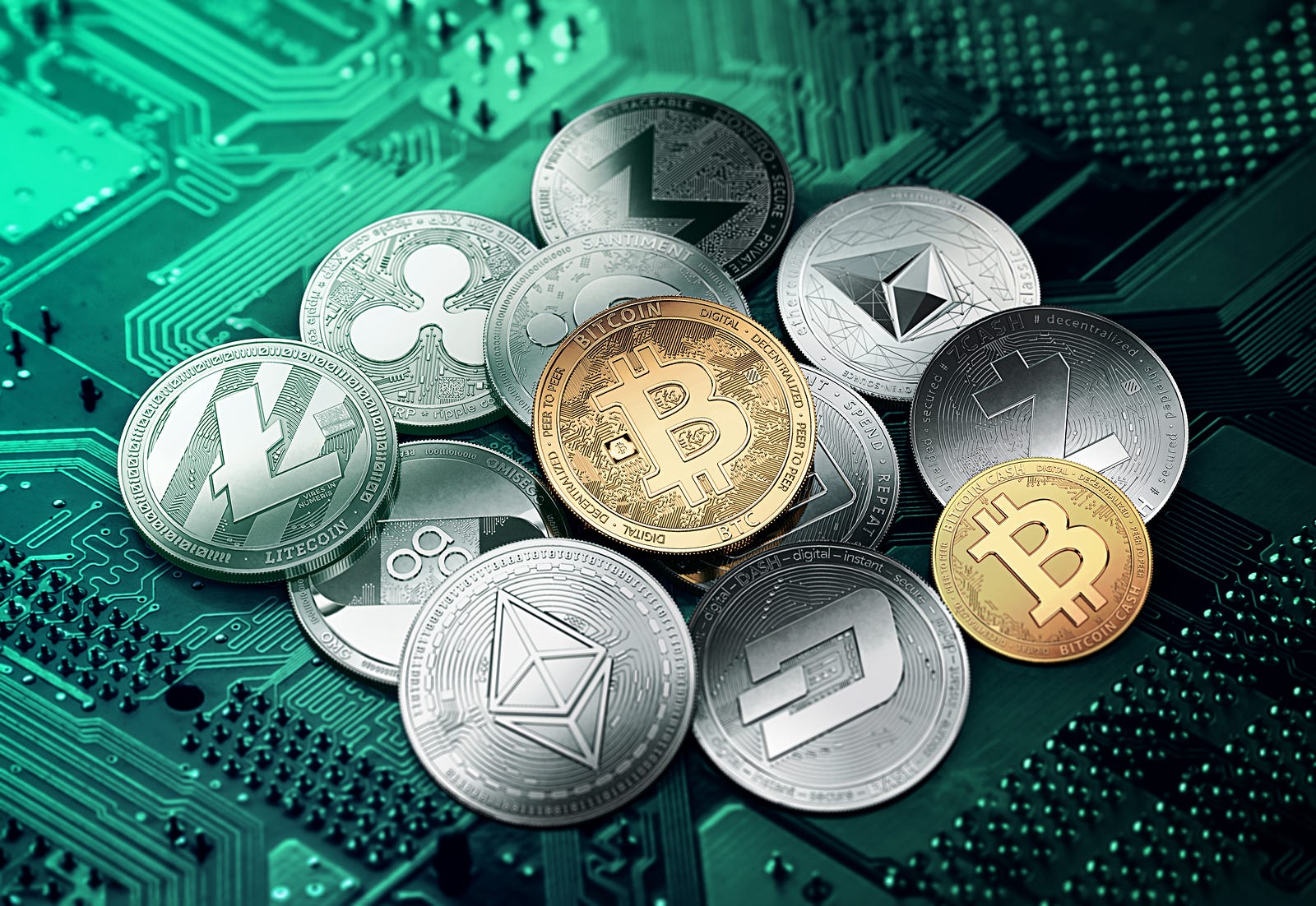No products in the cart.
Chưa được phân loại
cryptocurrency
Cryptocurrency
A stablecoin is a crypto asset that maintains a stable value regardless of market conditions. This is most commonly achieved by pegging the stablecoin to a specific fiat currency such as the US dollar https://top-casino-review.org/. Stablecoins are useful because they can still be transacted on blockchain networks while avoiding the price volatility of “normal” cryptocurrencies such as Bitcoin and Ethereum. Outside of stablecoins, cryptocurrency prices can change rapidly, and it’s not uncommon to see the crypto market gain or lose more than 10% in a single day.
The top 10 cryptocurrencies are ranked by their market capitalization. Even though 10 is an arbitrarily selected number, being in the top 10 by market capitalization is a sign that the cryptocurrency enjoys a lot of relevance in the crypto market. The crypto top 10 changes frequently because of the high volatility of crypto prices. Despite this, Bitcoin and Ethereum have been ranked #1 and #2, respectively, for several years now.
The miner that provides the correct solution to the problem first gets to add the new block of transactions to the blockchain and receives a reward in return for their work. Bitcoin miners are rewarded with BTC, Ethereum miners are rewarded with ETH, and so forth.
However, Bitcoin is far from the only player in the game, and there are numerous altcoins that have reached multi-billion dollar valuations. The second largest cryptocurrency is Ethereum, which supports smart contracts and allows users to make highly complex decentralized applications. In fact, Ethereum has grown so large that the word “altcoin” is rarely used to describe it now.

Cryptocurrency bitcoin price
Aside from congressional hearings, there are private sector crypto initiatives dedicated to solving environmental issues such as the Crypto Climate Accord and Bitcoin Mining Council. In fact, the Crypto Climate Accord proposes a plan to eliminate all greenhouse gas emissions by 2040, And, due to the innovative potential of Bitcoin, it is reasonable to believe that such grand plans may be achieved.
A few years ago, the idea that a publicly traded company might hold Bitcoin on its balance sheets seemed highly laughable. The flagship cryptocurrency was considered to be too volatile to be adopted by any serious business. Many top investors, including Warren Buffett, labeled the asset a “bubble waiting to pop.”
This negative sentiment appears to have been broken, with a number of corporate behemoths buying up Bitcoin since 2020. In particular, business intelligence firm MicroStrategy set the pace after it bought $425 million worth of Bitcoin in August and September 2020. Since then, many others have followed suit, including EV manufacturer Tesla.
The very first cryptocurrency was Bitcoin. Since it is open source, it is possible for other people to use the majority of the code, make a few changes and then launch their own separate currency. Many people have done exactly this. Some of these coins are very similar to Bitcoin, with just one or two amended features (such as Litecoin), while others are very different, with varying models of security, issuance and governance. However, they all share the same moniker — every coin issued after Bitcoin is considered to be an altcoin.
Related Links Are you ready to learn more? Visit our glossary and crypto learning center. Are you interested in the scope of crypto assets? Investigate our list of cryptocurrency categories. Are you interested in knowing which the hottest dex pairs are currently?
What is cryptocurrency
These physical representations of cryptocurrency do not hold any value by themselves; these are only utilized for collectable purposes. For example, the first incarnation of the bitcoin Casascius, coins made of silver, brass or aluminum sometimes with gold plating, or Titan Bitcoin, which in silver or gold versions are sought after by numismatists.
The first cryptocurrency was bitcoin, which was first released as open-source software in 2009. As of June 2023, there were more than 25,000 other cryptocurrencies in the marketplace, of which more than 40 had a market capitalization exceeding $1 billion. As of April 2025, the cryptocurrency market capitalization was already estimated at $2.76 trillion.
Another way to manage your risk, particularly when you’re new to crypto investments, is to set aside a portion of investable funds. For example, if you have $100 to invest, start investing a small percentage of that money in crypto. Doing so gives you time to get a feel for how the market works while actively participating. It also gives you a bankroll on reserve to work with on future trades.
Cold wallets: A cold wallet doesn’t connect to the internet. You can store your cryptocurrency in an external drive, such as a USB device. You’ll receive a keycode to keep in a safe place. Should you lose the keycode, you may lose access to your crypto wallet and cryptocurrency.

These physical representations of cryptocurrency do not hold any value by themselves; these are only utilized for collectable purposes. For example, the first incarnation of the bitcoin Casascius, coins made of silver, brass or aluminum sometimes with gold plating, or Titan Bitcoin, which in silver or gold versions are sought after by numismatists.
The first cryptocurrency was bitcoin, which was first released as open-source software in 2009. As of June 2023, there were more than 25,000 other cryptocurrencies in the marketplace, of which more than 40 had a market capitalization exceeding $1 billion. As of April 2025, the cryptocurrency market capitalization was already estimated at $2.76 trillion.
Cryptocurrency news
Investment firm VanEck is launching a tokenized real-world asset (RWA) fund that offers exposure to US Treasury bills, developed in partnership with tokenization platform Securitize. The initiative places VanEck among a growing number of traditional finance firms entering the RWA tokenization space.
Arizona Governor Katie Hobbs vetoed two key cryptocurrency-related bills that aimed to expand the state’s involvement in digital assets while signing a strict regulatory measure targeting Bitcoin ATMs.
“Current volatility in cryptocurrency markets does not make a prudent fit for general fund dollars,” she stated in her veto letter. “I have already signed legislation this session which allows the state to utilize cryptocurrency without placing general fund dollars at risk,” she added.
That decision followed her veto of Senate Bill 1025 — the more ambitious “Arizona Strategic Bitcoin Reserve Act” — on May 3. It would have authorized up to 10% of the state’s treasury and retirement funds to be invested in Bitcoin and other digital assets.
Stablecoin issuer Tether bought $458.7 million worth of Bitcoin for Twenty One Capital on May 13, a Bitcoin investment firm it backed that’s working on a Special Purpose Acquisition Company (SPAC) merger with Cantor Equity Partners.
